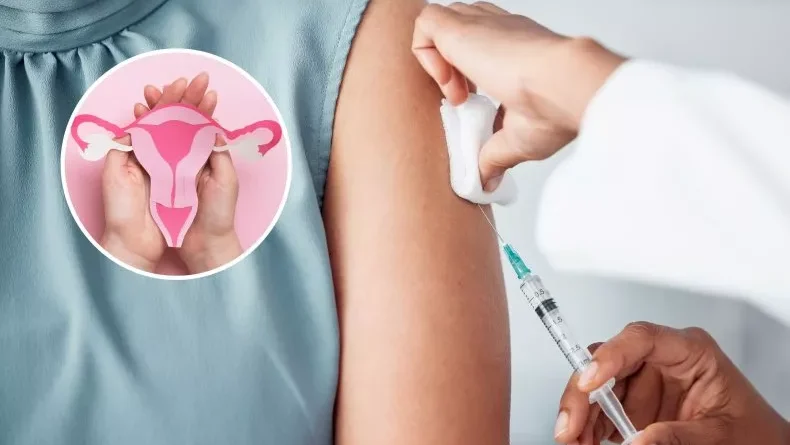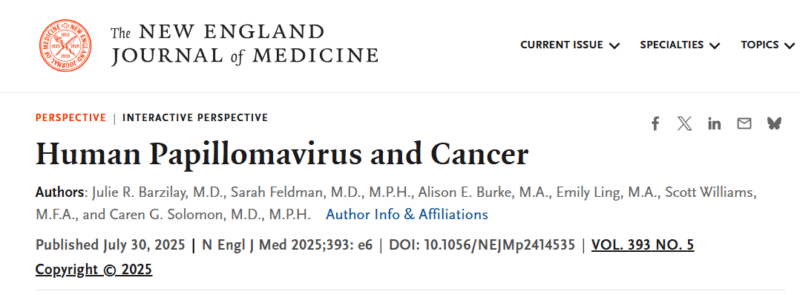
HPV and Cancer: Why Prevention Still Matters – The Babak Lab
The Babak Lab shared a post on LinkedIn about recent paper by Julie R. Barzilay et al., published in NEJM.
“HPV and Cancer — Why Prevention Still Matters
A perspective piece in The New England Journal of Medicine (July 2025) underscores the persistent global impact of high-risk HPV strains (notably types 16 and 18) — linked to cancers of the cervix, anus, oropharynx, vulva, vagina, penis — despite existing preventive tools.
Study Focus:
Review current evidence on HPV’s role in oncogenesis and outline gaps in global prevention—specifically vaccination and screening.
Key Insights:
- HPV is the most common STI globally; persistent infection with high‑risk types causes ~90% of cervical cancers and a majority of other HPV-related tumors
- Vaccines like Gardasil 9 offer nearly 100% protection if administered before exposure — but coverage remains suboptimal in many low-resource areas
- Emerging evidence supports single-dose vaccination strategies, which could simplify scheduling and improve vaccine uptake globally
- Policy and equity issues still limit access; closing these gaps is essential to reduce HPV-related cancer burden
Conclusion:
HPV-associated cancers remain highly preventable. Translating vaccine efficacy into real-world impact requires broadening coverage, simplifying dosing regimens, and ensuring equitable global access.”
Video attached to the post.
Title: Human Papillomavirus and Cancer
Authors: Julie R. Barzilay, Sarah Feldman, Alison E. Burke, Emily Ling, Scott Williams, and Caren G. Solomon
Read The Full Article at NEJM.

More posts featuring The Babak Lab and Maria Babak.
-
Challenging the Status Quo in Colorectal Cancer 2024
December 6-8, 2024
-
ESMO 2024 Congress
September 13-17, 2024
-
ASCO Annual Meeting
May 30 - June 4, 2024
-
Yvonne Award 2024
May 31, 2024
-
OncoThon 2024, Online
Feb. 15, 2024
-
Global Summit on War & Cancer 2023, Online
Dec. 14-16, 2023
